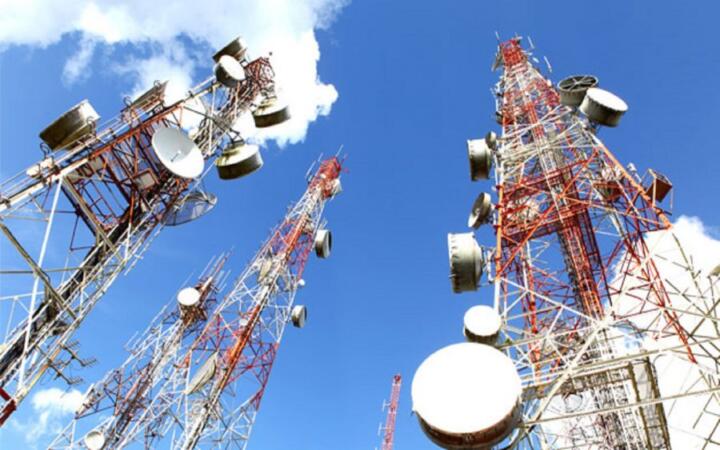Nigeria is embarking on a major transformation of its telecommunications sector with a landmark investment of \$1 billion to overhaul network infrastructure. This ambitious initiative, announced by the Minister of Communications and Digital Economy, Dr. Bosun Tijani, represents one of the largest infrastructure upgrades in Nigeria’s telecom history and aims to significantly enhance the quality and reach of telecom services across the country.
The \$1 billion investment will fund the acquisition and deployment of new network equipment, with deliveries scheduled to begin in July 2025. This upgrade is expected to improve service quality substantially by the third quarter of the year, addressing persistent issues such as dropped calls, slow internet speeds, and limited broadband access, especially in underserved rural communities.

This investment comes after a long period of relatively stagnant telecom tariffs in Nigeria. In February 2025, the Nigerian government approved a 50% tariff increase—the first in over a decade. Telecom operators have faced soaring operational costs, which have risen by more than 300% in the last ten years. The tariff adjustment provides the financial foundation necessary for telecom companies to reinvest in their infrastructure and modernize networks to meet growing demand.
According to Dr. Tijani, the focus of the investment will be on expanding and enhancing 4G and 5G networks, improving network capacity, and upgrading existing infrastructure. Equipment will be sourced primarily from Original Equipment Manufacturers (OEMs) in China, reflecting global industry trends and the cost-effectiveness of these partnerships. The Nigerian Communications Commission (NCC) has confirmed that shipments of the new equipment will commence between June and July 2025.
The investment is expected to bring widespread benefits. Consumers will enjoy better call quality, faster internet speeds, and more reliable connections, while businesses will gain from improved digital infrastructure supporting e-commerce, remote work, and other digital services. Enhanced connectivity is crucial for Nigeria’s digital economy ambitions, as telecommunications underpin sectors such as fintech, education, healthcare, and entertainment.
Beyond the private sector-led investment, the Nigerian government remains committed to addressing connectivity gaps in regions where commercial investment is less viable. Dr. Tijani emphasized that the government will continue to invest in infrastructure projects targeting rural and underserved communities to ensure equitable access to telecommunications services nationwide. This public sector role is vital to achieving digital inclusion and reducing the urban-rural digital divide.
The economic implications of this telecom overhaul are significant. The telecommunications sector contributed approximately 14% to Nigeria’s Gross Domestic Product (GDP) as of the third quarter of 2024, highlighting its importance as a driver of economic activity. With upgraded infrastructure and broader connectivity, the sector is expected to spur further growth by attracting investments, creating jobs, and enabling innovation in digital services.
Job creation is a key anticipated outcome of the investment. The rollout of new infrastructure will require skilled labor for installation, maintenance, and technical support. Additionally, improved connectivity will foster the growth of tech startups and digital enterprises, generating employment opportunities across the country.
The timing of the investment aligns with Nigeria’s broader national agenda to boost its digital economy and compete on the global technology stage. By modernizing its telecom infrastructure, Nigeria aims to position itself as a leader in digital innovation in Africa, attracting foreign investment and enabling local businesses to thrive in the digital era.
Consumers have faced challenges for years with network congestion, poor coverage in rural areas, and service interruptions. This \$1 billion upgrade aims to tackle these issues head-on. For many Nigerians, improved telecom services will mean greater access to education through e-learning platforms, better telemedicine options, and more efficient government services delivered online.
The success of the project depends on effective coordination between telecom operators, the government, regulators, and equipment suppliers. The Nigerian Communications Commission will play a critical role in overseeing the rollout, ensuring compliance with standards, and promoting fair competition among operators.
In addition to expanding 4G coverage, the investment will accelerate the deployment of 5G technology, which promises ultra-fast internet speeds and low latency. 5G networks are expected to revolutionize industries such as manufacturing, agriculture, and logistics by enabling the Internet of Things (IoT) and smart infrastructure.
The government has indicated plans to maintain regulatory stability to encourage ongoing investment in the sector. A stable regulatory environment is essential for operators to plan long-term infrastructure projects and for investors to have confidence in the market.
In summary, Nigeria’s \$1 billion telecom investment marks a pivotal moment in the country’s digital transformation journey. By upgrading critical infrastructure, expanding coverage, and improving service quality, the initiative promises to deliver widespread social and economic benefits.
Enhanced connectivity will empower Nigerians across the country by providing better access to information, services, and economic opportunities. The investment is expected to accelerate Nigeria’s progress toward becoming a digitally enabled economy, with a strong telecommunications backbone supporting growth and innovation.
As deliveries of new network equipment begin in mid-2025 and upgrades roll out nationwide, Nigerians can look forward to a future of more reliable, faster, and more accessible telecommunications. This transformation will not only improve everyday communications but also open doors for new technologies and digital services that will shape Nigeria’s future in the years to come.
Support InfoStride News' Credible Journalism: Only credible journalism can guarantee a fair, accountable and transparent society, including democracy and government. It involves a lot of efforts and money. We need your support. Click here to Donate
